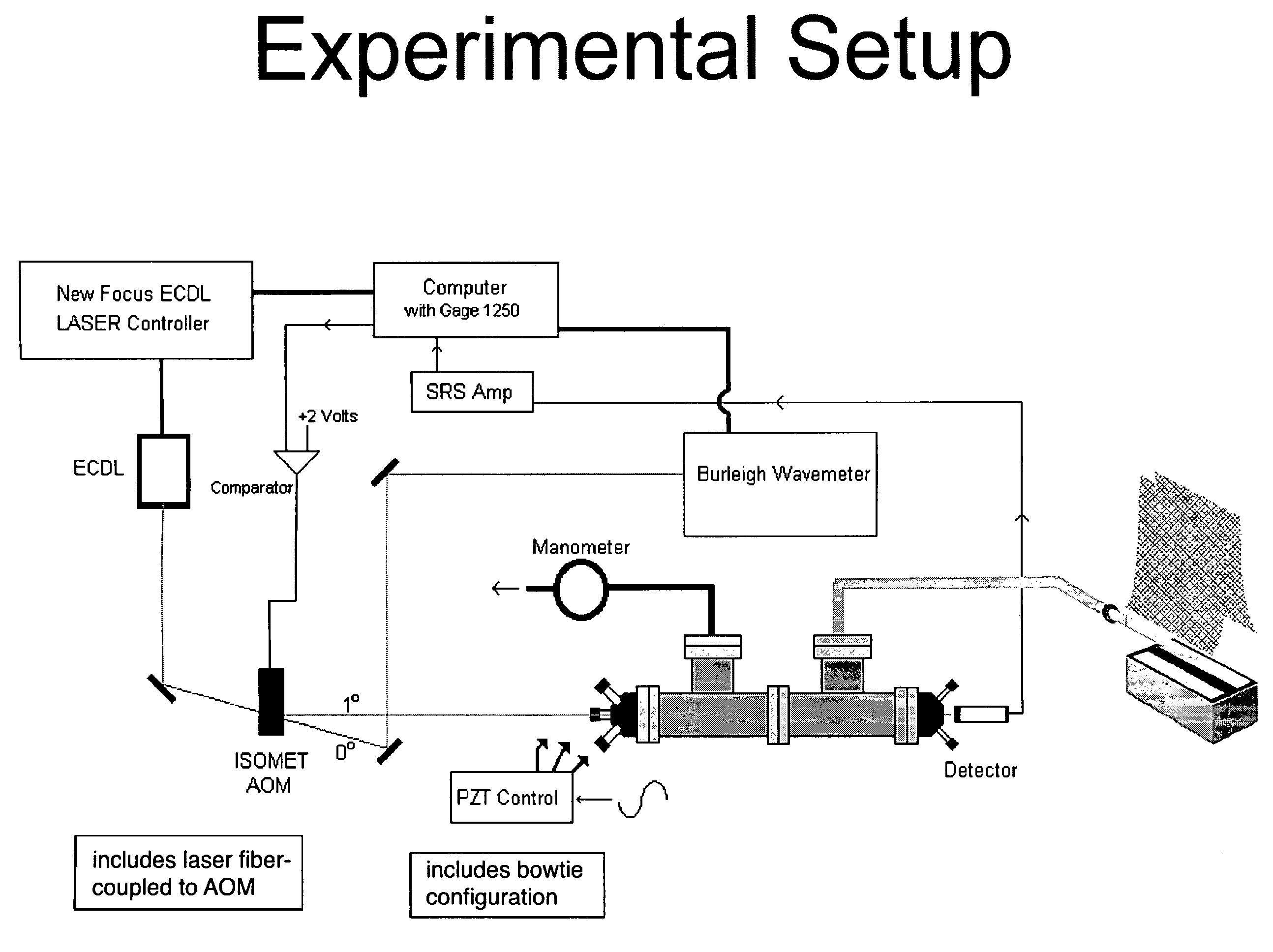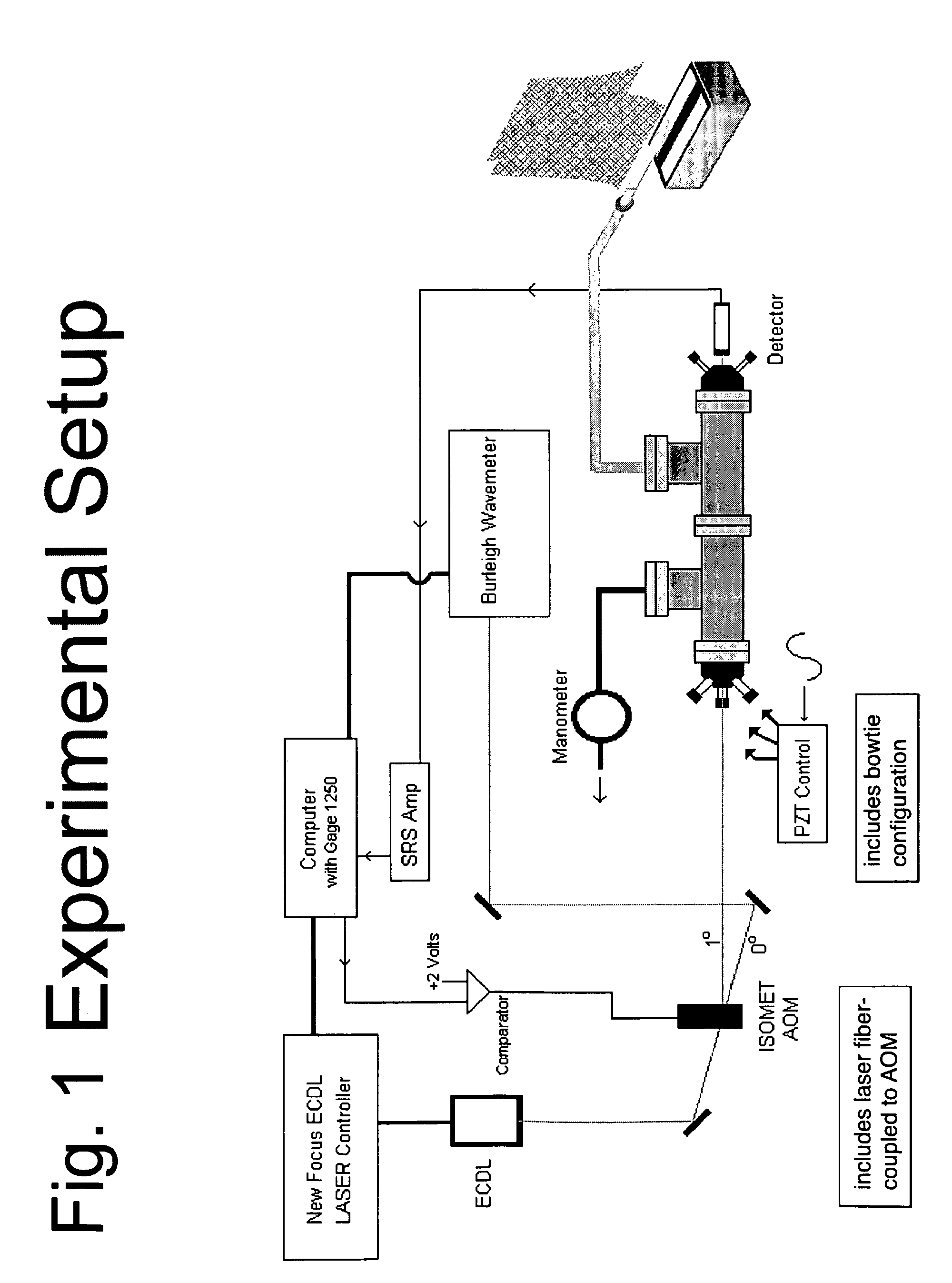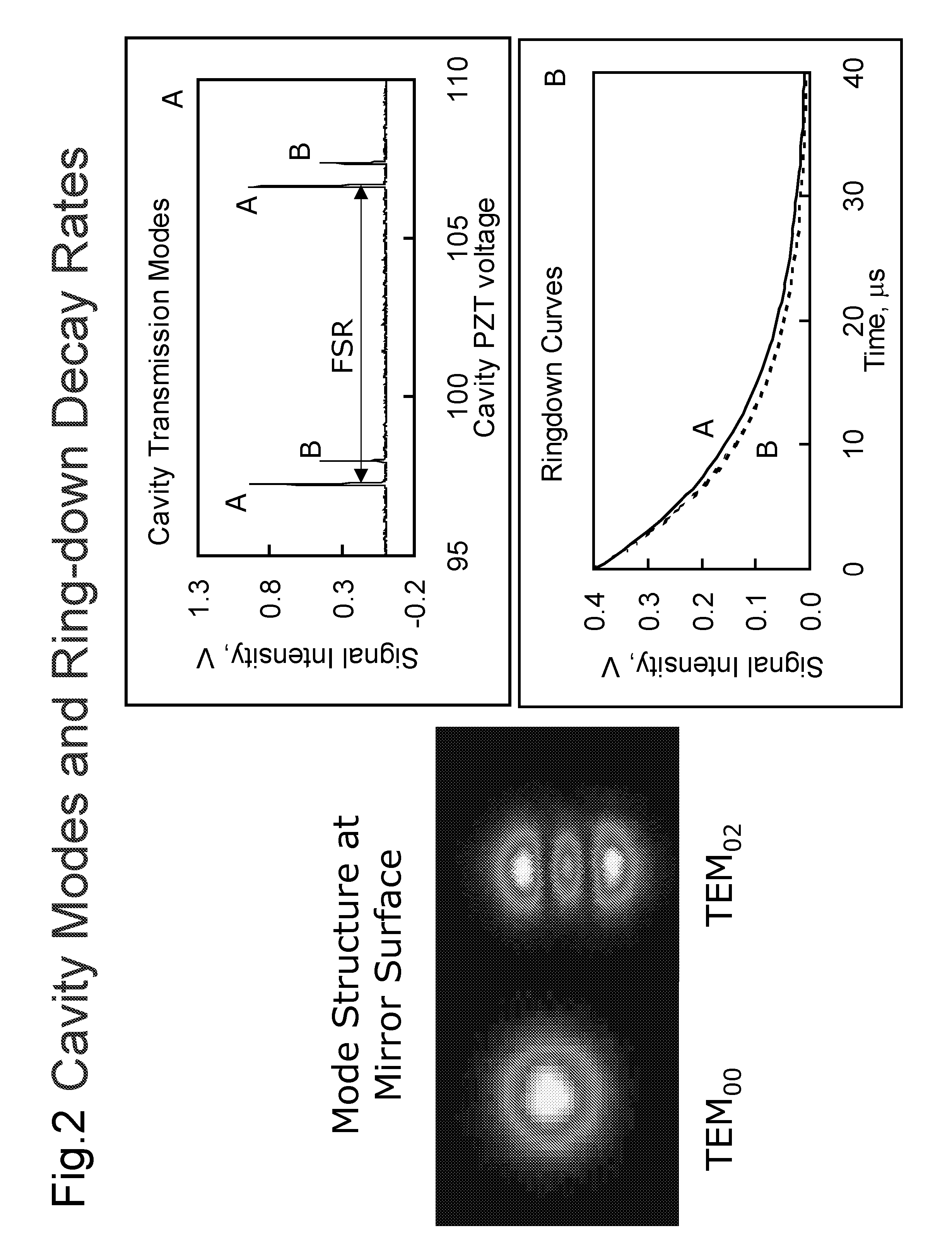Compact near-IR and mid-IR cavity ring down spectroscopy device
a spectrometer and cavity technology, applied in the direction of optical radiation measurement, material analysis, instruments, etc., can solve the problems of sensitivity, size and cost, accuracy, sensitivity, selectivity, etc., and achieve the effect of low power consumption
- Summary
- Abstract
- Description
- Claims
- Application Information
AI Technical Summary
Benefits of technology
Problems solved by technology
Method used
Image
Examples
example 1
[0151]A CRDS apparatus using near-IR as described is installed in an aircraft to monitor trace species relevant to fire detection. It would be expected that there would be a significant improvement in reducing the number of false alarms which cause mandatory grounding and inspection of aircraft and thus generate a significant savings in aircraft maintenance costs.
example 2
[0152]A CRDS apparatus using near-IR as described is installed in a commercial office building, e.g. the HVAC system to monitor trace species relevant to fire detection. It would be expected that there would be a significant improvement in reducing the number of false alarms and in improving the sensitivity of such fire detection devices and thus generating a significant savings in building maintenance and safety costs.
example 3
[0153]A CRDS apparatus using mid-IR as described is installed in an aircraft to monitor trace species relevant to air quality and safety, e.g. chemical weapons. It would be expected that there would be a significant improvement in improving the detection of large molecule toxins as well as in reducing the number of false alarms which cause mandatory grounding and inspection of aircraft and thus generate a significant savings in aircraft maintenance costs.
PUM
 Login to View More
Login to View More Abstract
Description
Claims
Application Information
 Login to View More
Login to View More - R&D
- Intellectual Property
- Life Sciences
- Materials
- Tech Scout
- Unparalleled Data Quality
- Higher Quality Content
- 60% Fewer Hallucinations
Browse by: Latest US Patents, China's latest patents, Technical Efficacy Thesaurus, Application Domain, Technology Topic, Popular Technical Reports.
© 2025 PatSnap. All rights reserved.Legal|Privacy policy|Modern Slavery Act Transparency Statement|Sitemap|About US| Contact US: help@patsnap.com



